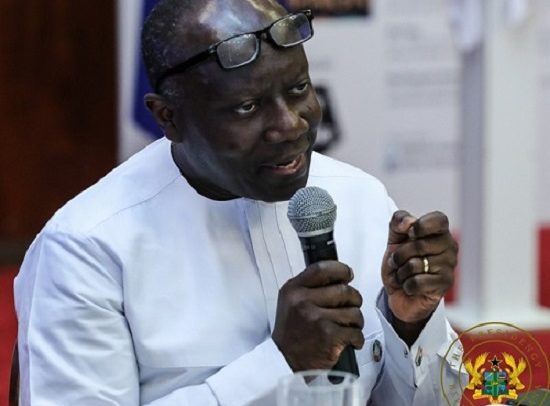The government of Ghana bagged a sum of Gh¢10.84 billion out of total bids worth gh¢12.03 billion in the money market during the month of December, 2022.
According to the government, this was made possible due to the improvement in demand and tight pricing competition at the auctions, combined with the exemption of Treasury bills from the Domestic Debt Exchange Program.
“Due to the improved demand, T-bill exclusion from DDEP and tight pricing competition at the auctions, the yields on the 91-day and 182-day tenors fell marginally. This situation spurred investors demand and as well reduced the government cost of borrowing slightly within that period” said Ken Ofori-Atta who is in charge of the Ministry of Finance
Some analysts elaborating on T-bills’ demand has disclosed that the T-bills demand will continue to be high, while the secondary market remains quiet as investors seek clarity and decide on participating in the Domestic Debt Exchange program.
According to these analysts, despite how unsecured the nation is pertaining to investment, the exemption of treasury bills from the debt exchange program tends to at least motivate individuals to venture into that as compared to bonds.
T-Bills Interest Rates Remain Stable
The government of Ghana exceeded its treasury bills target by 15.4% to ¢1.72 billion in the latest treasury auction, but at the expense of keeping interest rates stable.
According to the auction results, government got an extra ¢350 million though it was expected to raise about ¢1.49 billion to refinance Treasury bill maturities of ¢1.37 billion.
Nonetheless, the expectation of the government was a fall in the interest rate due to the rising demand for the short-term financial instruments.
Also, since government’s only source of borrowing for now is the treasury market, ideally, demand for the treasury securities should have pushed the rates a little down.
Majority of the bids came from the 91-day T-bills, where a little over ¢1.411 billion were received at a relatively same interest rate of 35.65% from the previous week. Gh¢1.405 billion of the bids were however accepted.
For the 182 T-bills, GH¢311.91 million were tendered in by the investors, out of which ¢270.32 million were accepted by the government.
The yield on the 182-day bill was also virtually unchanged at 35.94%.
Analysts expect T-bill yields to decline as an expected International Monetary Fund (IMF) support program in the first quarter of this year coupled with an unstable outlook of the cedi may limit currency pass-through to inflation.


Comments are closed.